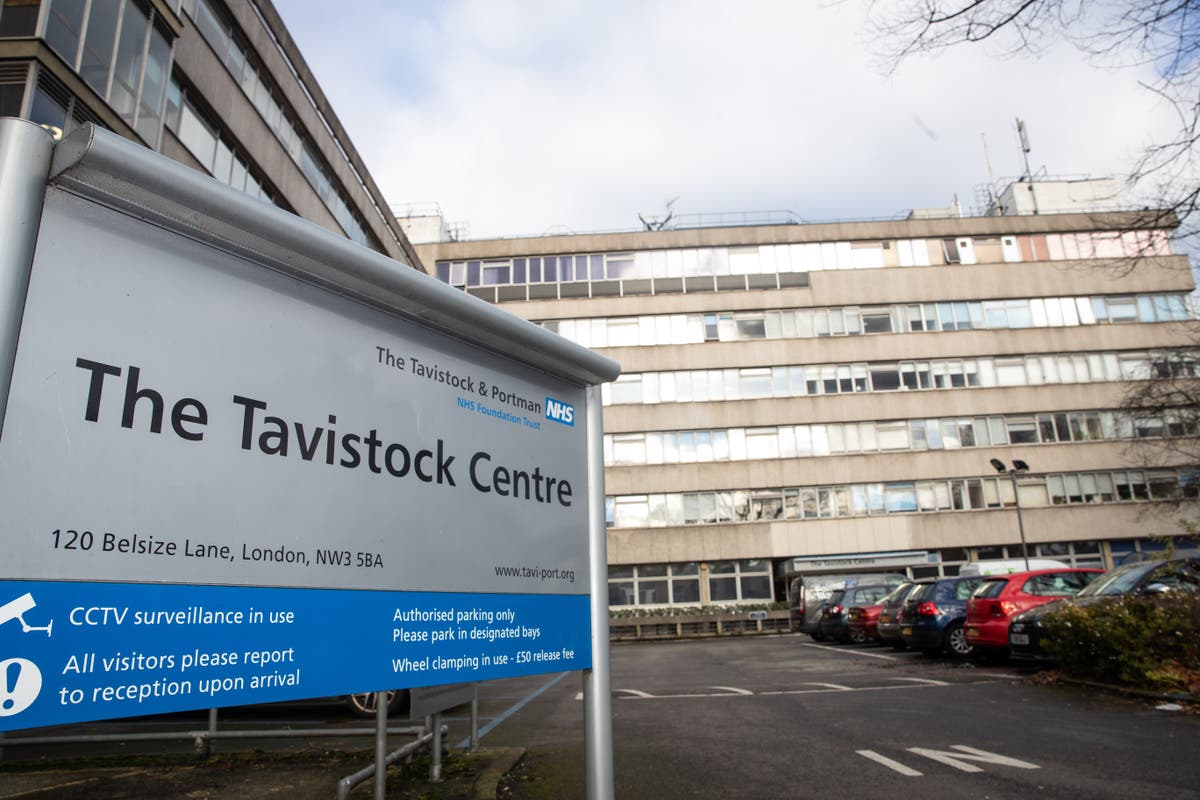- Joined
- Jul 12, 2019
- Messages
- 173
- Reaction score
- 101
Alright, time to bite. For those familiar, what are your thoughts on the Cass Review from the NHS?
 cass.independent-review.uk
cass.independent-review.uk


Going to a cafe today where I usually watch videos about aviation disasters and have some Cafe De Olla. Instead I'll crank this puppy out or try and get a decent bit.
This should be good. I can't wait for the raft of opinions, most of which have read none of the 388 pages of the report.
Going to a cafe today where I usually watch videos about aviation disasters and have some Cafe De Olla. Instead I'll crank this puppy out or try and get a decent bit.
I'm curious to read what she means by "weak evidence base." Those are bold claims given similar reports from Germany, American Academy of Pediatrics, etc.
The Editor in Chief maligning anyone who has any methodological critiques of the articles used by the report and turning off replies doesn't seem like the practice of good faith scientific inquiry.
This should be good. I can't wait for the raft of opinions, most of which have read none of the 388 pages of the report.
The Editor in Chief maligning anyone who has any methodological critiques of the articles used by the report and turning off replies doesn't seem like the practice of good faith scientific inquiry.
View attachment 385410
Uh oh, you just demonstrated a limited understanding of research methods and evidence based medicine.I decided, perhaps naively, that I would give this report as "objective a chance as possible."
Then I read that they ended up excluding 98% of articles they used on the basis of the studies "not being blinded." These are puberty blocker studies ... I immediately discounted this "review" after reading that, to be blunt.

I decided, perhaps naively, that I would give this report as "objective a chance as possible."
Then I read that they ended up excluding 98% of articles they used on the basis of the studies "not being blinded." These are puberty blocker studies ... I immediately discounted this "review" after reading that, to be blunt.
Where did you read this in the report? The relevant section under puberty blockers identifies 50 relevant studies and says 24 of them were excluded for being low quality evidence. How are you calculating the 98% number?
EDIT: They also explicitly talk at the top of the report about the fact that they made use of qualitative research and epidemiological data, so I'm not sure where the idea comes from that only blinded studies were examined.
Reasonable people can disagree about the conclusions or interpretation but this does not appear to have been a hack job.
The Editor in Chief maligning anyone who has any methodological critiques of the articles used by the report and turning off replies doesn't seem like the practice of good faith scientific inquiry.
View attachment 385410
Except he's not referring to specific criticisms that have been flawed, he's casting aspersions at any criticism of the methodology.I mean, some of the critiques I have seen definitely have no actual basis, which seems to be what he is referring to. And, the turning off of replies seems to be for his personal account from this screenshot. Given the nature and past experience with this area, hardly blame him. I wouldn't call someone's personal twitter account replies the bastion of scientific inquiry.
Where did you read this in the report? The relevant section under puberty blockers identifies 50 relevant studies and says 24 of them were excluded for being low quality evidence. How are you calculating the 98% number?
EDIT: They also explicitly talk at the top of the report about the fact that they made use of qualitative research and epidemiological data, so I'm not sure where the idea comes from that only blinded studies were examined.
Reasonable people can disagree about the conclusions or interpretation but this does not appear to have been a hack job.
Except he's not referring to specific criticisms that have been flawed, he's casting aspersions at any criticism of the methodology.
View attachment 385441
Citing a Mormon YouTube channel as the source for this study seems pretty hack.
Except he's not referring to specific criticisms that have been flawed, he's casting aspersions at any criticism of the methodology.
Okay, i fully admit that I may be missing something, but the recommendations don't seem too extreme in one side or the other to me. What is the controversy here? Or is it just because it's a controversial topic in general?
Didn't read the full report but just read the overview and recommendations.Okay, i fully admit that I may be missing something, but the recommendations don't seem too extreme in one side or the other to me. What is the controversy here? Or is it just because it's a controversial topic in general?
Your ignorance and erasure of other liquids is problematic.So basically what WisNeuro said. A report stating that water is wet is destined to generate controversy in our present political climate, let alone something like this...
I didn't see as much pushback on the recommendations. The interpretation of some of the literature was...off to me. I didn't do a deep dive because I only work with adults, and I figured I would end up annoyed. I have enough to keep me busy in my state.Okay, i fully admit that I may be missing something, but the recommendations don't seem too extreme in one side or the other to me. What is the controversy here? Or is it just because it's a controversial topic in general?
I didn't see as much pushback on the recommendations. The interpretation of some of the literature was...off to me. I didn't do a deep dive because I only work with adults, and I figured I would end up annoyed. I have enough to keep me busy in my state.
ETA: I took a deeper dive. As expected, the review was used as a hammer and essentially ended this as a treatment option.
This review has been a few years in the making. This is just the final version.Can you explain the last part more?


This review has been a few years in the making. This is just the final version.
This is from last year:
The National Health Service said Friday that “outside of a research setting, puberty-suppressing hormones should not be routinely commissioned for children and adolescents.”

England's health service says it won't give puberty blockers to children at gender clinics
England's publicly funded health service says it will not routinely offer puberty-blocking drugs to children at gender identity clinics. It says more evidence is needed about their potential benefits and harms. The National Health Service said Friday that “outside of a research setting...apnews.com
Now fewer than 100 are receiving puberty blockers:

NHS says children to no longer receive puberty blockers at gender identity clinics
Puberty blockers, which pause the physical changes of puberty such as breast development or facial hair, will now only be available to children as part of clinical research trialswww.independent.co.uk
No part of the report has to be problematic for the outcome to be unfortunate. Science is nuanced. Policy is not.In the puberty blocking section of the report, which specific parts are problematic?
No part of the report has to be problematic for the outcome to be unfortunate. Science is nuanced. Policy is not.
They're doing both. The critiques are available for people to evaluate for themselves.Then people should be attempting to sway their elected representatives, not critiquing the report?
They're doing both. The critiques are available for people to evaluate for themselves.
I was answering in earnest that it doesn't matter what the review says. The Cass Review assessed 50 articles and felt the literature was weak for puberty blockers. The recommendation was that we take a holistic approach. I agree that we should take a holistic approach. Then puberty blockers were essentially banned in all but the most "exceptional" of cases. I don't agree that it should be banned. My specific thoughts on aspects of the review are irrelevant.I get that, I was genuinely asking what that section was missing or misrepresented that made it problematic, as that portion was specifically brought up.
I was answering in earnest that it doesn't matter what the review says. The Cass Review assessed 50 articles and felt the literature was weak for puberty blockers. The recommendation was that we take a holistic approach. I agree that we should take a holistic approach. Then puberty blockers were essentially banned in all but the most "exceptional" of cases. I don't agree that it should be banned. My specific thoughts on aspects of the review are irrelevant.
Sort of. The review happened for a myriad of reasons including political pressure from groups with differing motives. The UK has fewer than 2,000 people this information even applies to. The science, like most science about human nature and biology, is messy. That's all that was needed to all but end access to a tool that was used by teams of likely competent people to basically tell them to do what they were already doing. That was all that was needed to close the door completely. It will likely be very challenging to change things in the future.That's fair, then the review was not the problem. I wouldn't say the review or critical thoughts on it are irrelevant, we should always look at such things with a critical eye. Some reviews are deeply flawed, like the Cochrane reviews on donepezil, and that's how we get prescribers selling billions of a drug that largely does nothing. Some are merely reviews of a body of literature in it's infancy in which there are many unanswered questions.